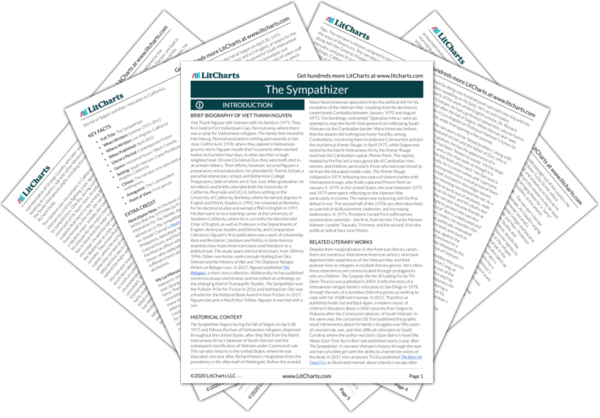For the narrator, the fantasy of cinema conflates with the reality of torture that he has witnessed. In cinema, torture can be idealized by depicting Yoon as a kind of saint for what he’s willing to endure to defend his relationship with the Americans. This illusion of saintliness tries to find nobility in such suffering, though the narrator knows better. The last line is an ironic twist on the narrator’s previous complaint to the Auteur about the Vietnamese characters not having speaking parts. The Auteur has gone from barely depicting the Vietnamese to deifying them—but either way, they are still not treated as full, complex human beings.


